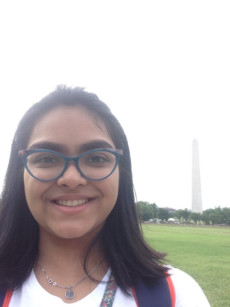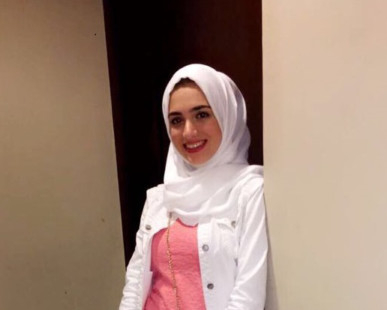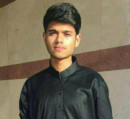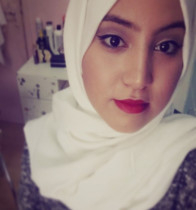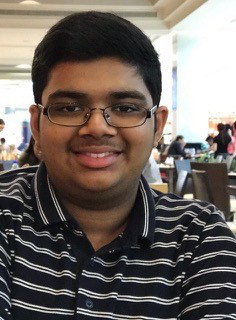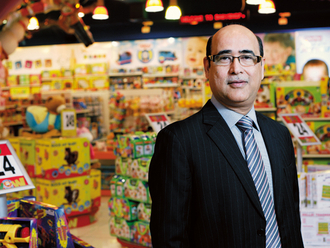
“When I speak in my mother tongue it takes me back home. If I didn’t know how to speak Farsi, I wouldn’t be able to speak to other Iranians and look back. It brings along certain feelings, a joke about Iranians will never be as funny translated, than in Farsi itself.”
Amin Rad
19-year-old Iranian student based in Dubai
“I think your mother tongue is something that shouldn’t be forgotten. It is what we are, it’s our origin. I will explore new things like learning other languages, but I will always be an Indian, who speaks Bengali. If we let go of our mother language, it means we aren’t happy with who we are.”
Diya Mazumdar
13-year-old Indian pupil based in Dubai
“When I think of my mother tongue, I think of my character and culture. It defines who I am. I see friends who don’t speak their mother tongue, and they are disconnected from their culture. It’s hard for them to communicate with their families.”
Sara Hossam
18-year-old Egyptian student based in Sharjah
“I believe that knowing your mother tongue and teaching it to future generations is important. It creates a connection and love for your country, which can’t be done any other way. I like certain things about my language that English doesn’t have, like that Urdu uses different pronouns for someone older than you. This depicts our culture.”
Nida Gulzar
16-year-old Pakistani student based in Sharjah
“Your mother tongue makes you belong to a specific country and identify with a group of people. People can differentiate Arabs when they speak different dialects, they know I am Syrian when I speak. If everyone starts speaking the same way, we won’t learn how to tolerate others.”
Eva Tillo
18-year-old Syrian student based Dubai
“It’s an embodiment of your culture. Especially living in a country I don’t hail from, speaking my mother tongue is a way to connect with my people. It’s a way to keep in touch with my Indian culture. Holding on to your mother tongue is a practice that is needed.”
Vaishnav Rajkumar
16-year-old Indian student based in Sharjah.
“I take special classes and watch videos online to keep in touch with Bengali as an expatriate. Bangladeshi communities need to take steps to encourage speaking it, especially among their children. The comfort I get speaking in Bengali with my parents, I don’t get from speaking in English.”
Rayed Jawad
18-year-old Bangladeshi student based in Dubai
— The writer is an intern with Gulf News.


